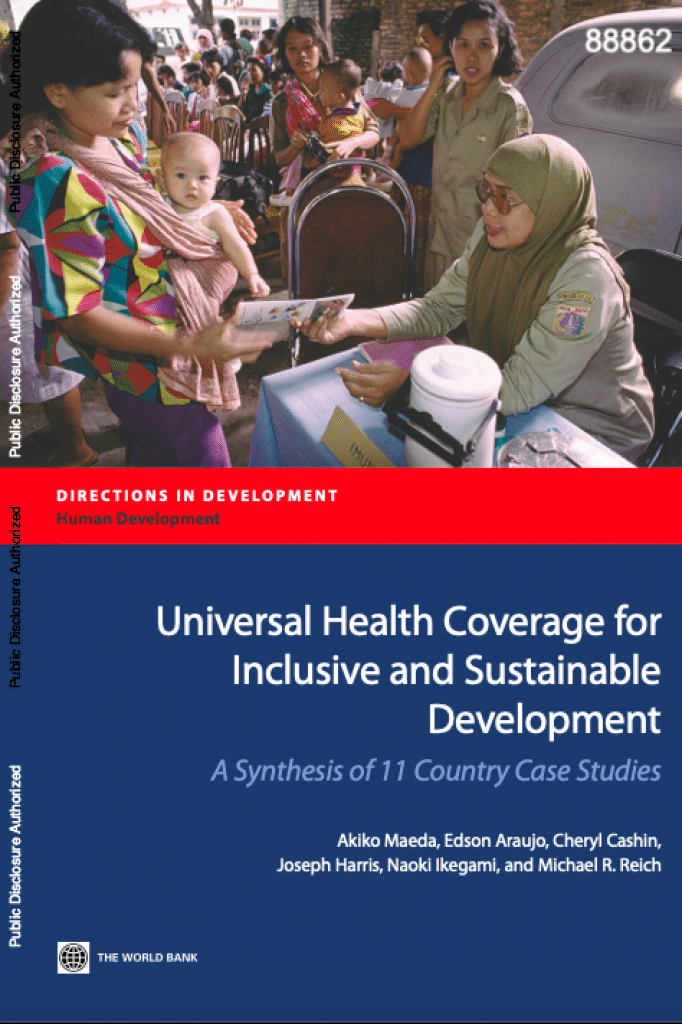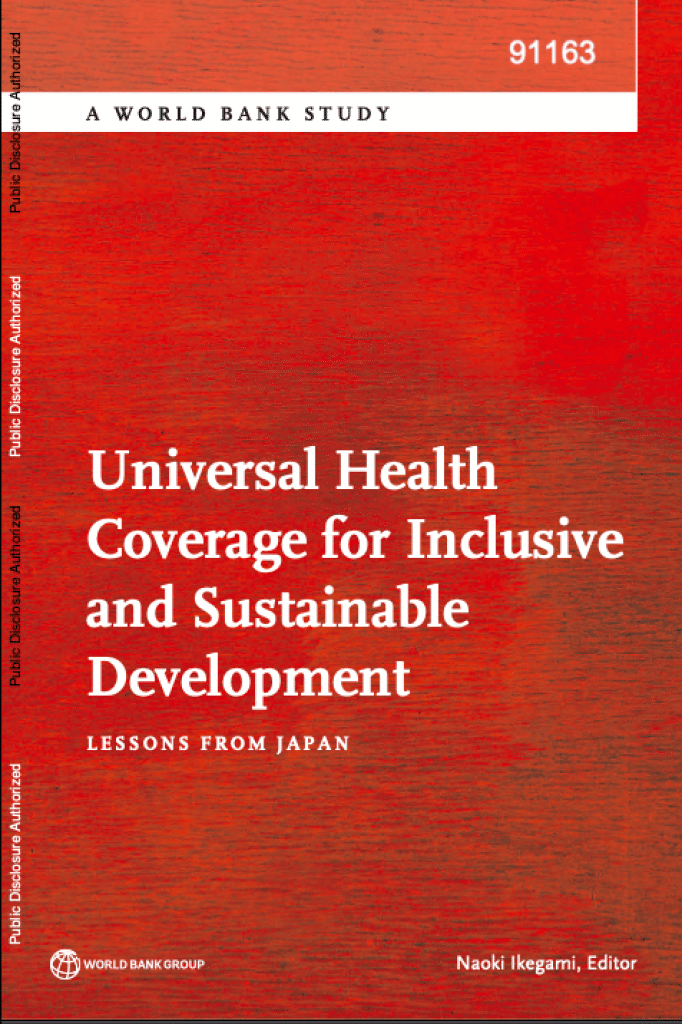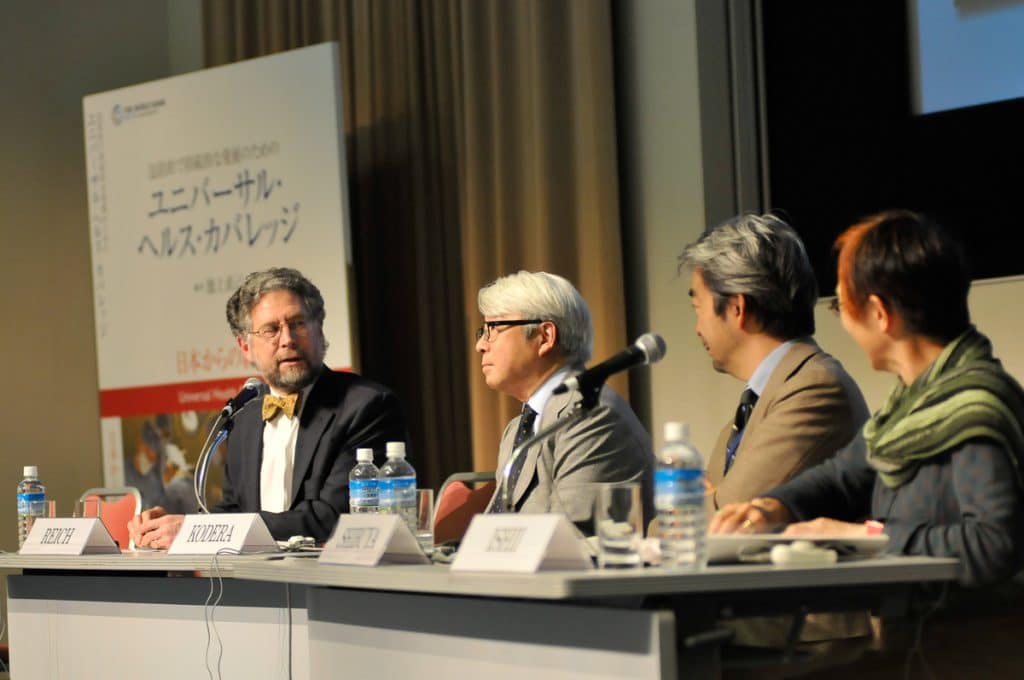What is Universal Health Coverage?
According to the World Health Organization, the goal of universal health coverage is to ensure that all people are able to obtain the health services they need without suffering financial hardship when paying for them.
Opening Remarks
Nobuhide Minorikawa, State Minister of Finance
Keizo Takemi, Co-Chair, Coordination Committee, Japan–World Bank Partnership Program on UHC; Senior Fellow, JCIE
Moderator: Akio Okawara, President & CEO, JCIE
A Synthesis of 11 Country Case Studies: Possible Paths to Adopt, Achieve, and Sustain UHC
Presentations:
■ Overview of Synthesis Report
Akiko Maeda, Lead Health Specialist, Health, Nutrition and Population Global Practice, World Bank Group [Moderator]
■ Political Economy of UHC Policies
Michael Reich, Taro Takemi Professor of International Health Policy, Department of Global Health and Population, Harvard School of Public Health
Comments:
Kiyoshi Kodera, Vice President, Japan International Cooperation Agency (JICA)
Kenji Shibuya, Professor and Chair, Department of Global Health Policy, Graduate School of Medicine, University of Tokyo
Sumie Ishii, Managing Director, Japanese Organization for International Cooperation in Family Planning (JOICFP)
Q & A
Lessons from Japan: What Can Japan Contribute to Promoting UHC Globally?
Presentations:
■ What Japan Can Share from Its Experiences
Naoki Ikegami, Professor and Chair, Department of Health Policy and Management, Keio School of Medicine [Moderator]
■ Macro Process of Health Policy Making
John Campbell, Project Researcher, Institute of Gerontology, University of Tokyo; Professor Emeritus of Political Science, University of Michigan
Shuzo Nishimura, Director, Institute for Health Economics and Policy
■ What Lessons from Japan Are Relevant for Other Countries: Thai Perspectives
Suwit Wibulpolprasert, Adviser to the Health Minister on Global Health, Thailand
Comments:
Kenji Shimazaki, Professor, National Graduate Institute for Policy Studies (GRIPS)
Koji Fujimoto, Deputy Director, Office for Healthcare and Medical Strategy, Cabinet Office
Osamu Utsunomiya, Director-General, Bureau of International Medical Cooperation, National Center for Global Health and Medicine
Toshiro Kumakawa, Director, Department of Health and Welfare Services, National Institute of Public Health, Japan
Q & A
Closing Remarks
Kazuyuki Nakane, Parliamentary Vice-Minister for Foreign Affairs
Yasusuke Tsukagoshi, Special Representative to Japan, World Bank Group
Reception
Welcome Remarks: Yasuhisa Shiozaki, Minister of Health, Labour and Welfare



